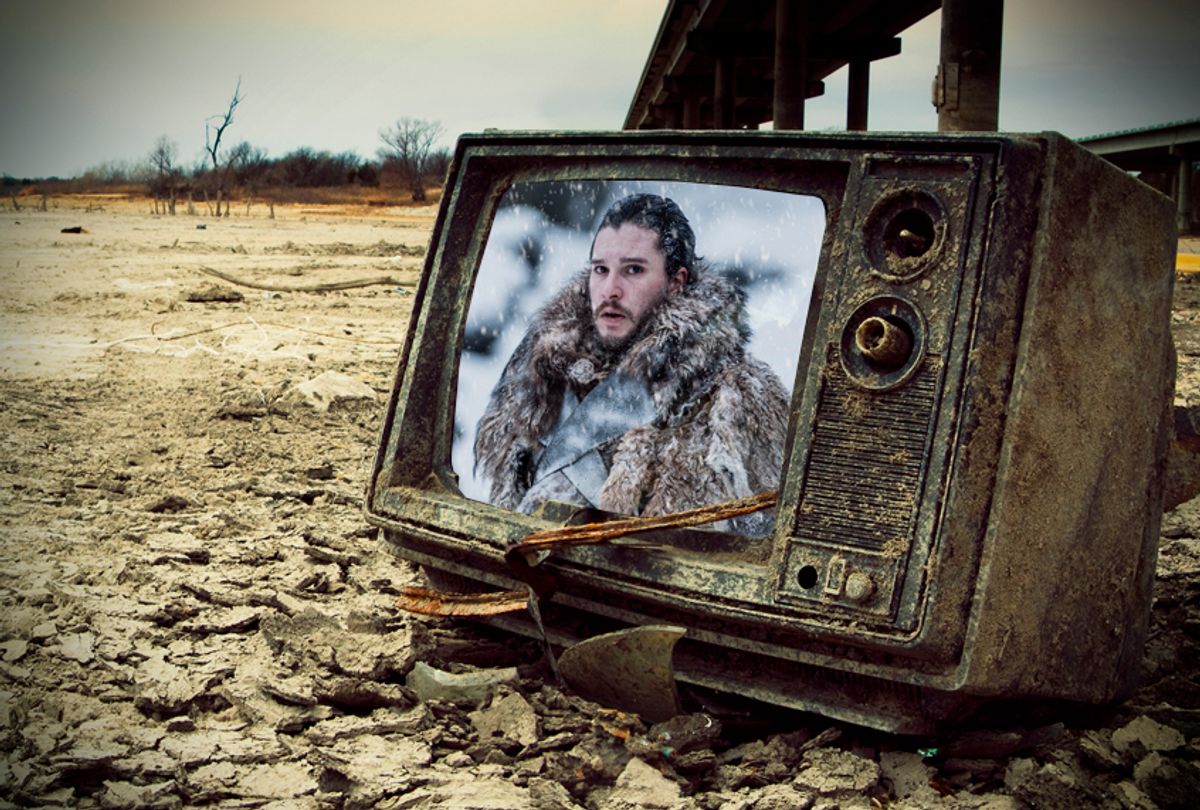It’s standard for television critics to take to Twitter on a given Sunday to discuss HBO. But this past Sunday there was a twist: It wasn’t HBO programming critics were weighing in on, but a performance given by HBO’s executives.
On July 8, the New York Times detailed a discussion between John Stankey, an AT&T veteran who recently was named chief executive of Warner Media (which oversees HBO), and Richard Plepler, HBO’s chief executive, at a June closed-door town hall attended by 150 HBO employees.
It was easy to read the Times recap of the meeting and conclude that HBO’s new corporate overlords were angling for the network to become more like Netflix (meaning bigger and broader), and that in the process America’s marquee premium cable network would take a hit in quality.
“There’s got to be a little bit more depth to [the brand], there’s got to be that more frequent engagement,” Stankey said. “It’s not once a week. It’s got to be an hour a day. And we’ve got to think about how, over time, we start to build that brand so that it’s broad enough to make that happen.”
READ MORE: Women’s anger is not to be ignored: Lessons from HBO’s “Sharp Objects”
Many critics jumped on that quote; the backlash was swift and wide. In a column for the Atlantic, David Sims concluded that Stankey’s vision could compromise HBO’s prestige identity. “Founded more than 45 years ago, HBO has long been a challenge to broadcast television, staking its reputation on offering something different,” Sims wrote. “As the slogan went, it’s not TV, it’s HBO. Now, Stankey wants to make it TV.”
Conclusions like the one Sims came to, though, seem both backwards and myopic. Despite its clever marketing, HBO has always been TV. It operates on a unique schedule and has arguably produced more quality programming than any other network in the past 45 years. But since its founding, the network’s programs have indeed been built for the screen in your living room.
That is, of course, changing — for HBO and everybody else. “Reporters, critics, and fans have an idealized, narrow view of what HBO is that mostly boils down to its Sunday programming,” says Corey Barker, assistant professor in residence in Communication at Bradley University. “That ignores the licensed films, sports programming or softcore programming that also fills the HBO schedule the other six days of the week. It also ignores the shifts in social media practice and branding that have already occurred in recent years.”
During these past few years, HBO has become more active on social media and more adept online. Fans of “Westworld,” for instance, can subscribe to realistic emails from Delos, the fictional corporation that controls the fictional park. And at the same time, HBO has partnered with digital media, creating shows with Vice and in conjunction with Bill Simmons’ The Ringer, in which HBO is an investor. Emil Steiner, an assistant professor at Rowan University who studies streaming television, told me that “multi-platform immersive storytelling environments is definitely going to be the future.”
And if anything, Stankey seemed to signal that HBO is transitioning into its slogan — needing to become much more than TV in a world where cable ceases to exist. He spoke, for instance, of bringing “our intellectual properties and capabilities together.”
READ MORE: Nobody gets out alive if the advertising model fails: not Facebook, not Google, not Amazon
Gene Del Vecchio, a professor of marketing at USC’s Marshall School of Business, contended that much of the media was missing the forest for the trees. “It’s not about HBO. It's about Warner Media using all the weapons in its arsenal to survive this coming battle. And that battle is over content and distribution like it's never been seen before.”
To cast things in terms that HBO fans might understand: This wasn’t about HBO eyeing the current streaming throne holder (Netflix); it was about dragons in the horizon.
Or, as it were, mice. Disney, which is developing its own streaming platform, is gearing up to acquire 20th Century Fox movie studio, 20th Century Fox Television TV studio, FX Networks, and its satellite distribution throughout Europe. These moves would expand Disney's production and distribution, giving it power Netflix can only dream of.
Most industry insiders and experts agree that we’re headed for a world where only a few streaming platforms coexist. In the meeting, Stankey himself said that “there aren’t going to be an unlimited number of platforms that have direct-to-consumer relationships,” and alluded to gearing up for battle with the Amazons, Apples, Googles, and Facebooks of the world.
“The real issue for Warner Media is how it can take HBO, DC, Warner Bros. Pictures, and all of the content coming from a Cartoon Network, and work them together synergistically, using AT&T's reach in order to connect with more consumers, more often,” said Del Vechio.
And add one more piece to that tapestry: NewTV.
Though it was left unsaid during the HBO meeting, Warner recently invested significantly in Hollywood mogul Jeffrey Katzenberg’s $800 million short-form streaming startup. Could HBO help bring “Sopranos”-level quality to five-to-15 minute videos? And how might all of the different platforms under the Warner umbrella interact?
The transcript from the meeting makes it seem like not even Stankey is sure. But for now, the future for consumers who enjoy high-quality programming is full of possibility. It might just be that our notion of what is prestige — and moreover, what is TV — is what needs to change.



Shares